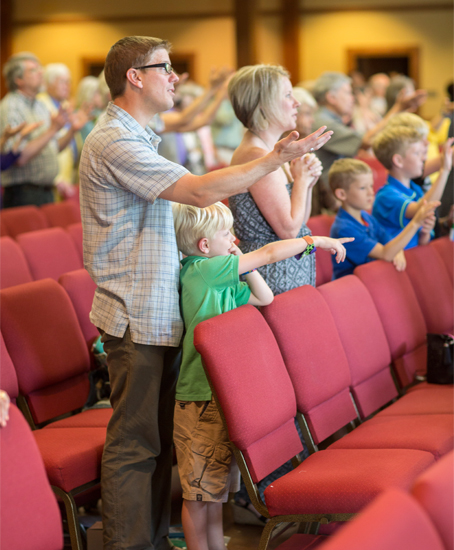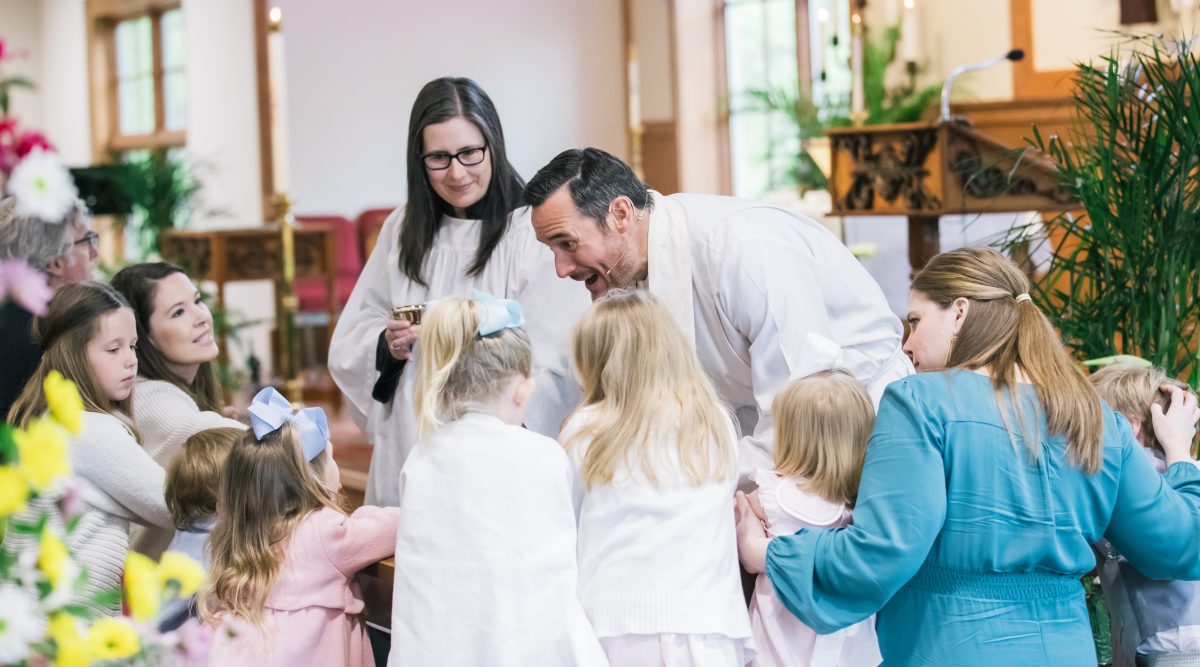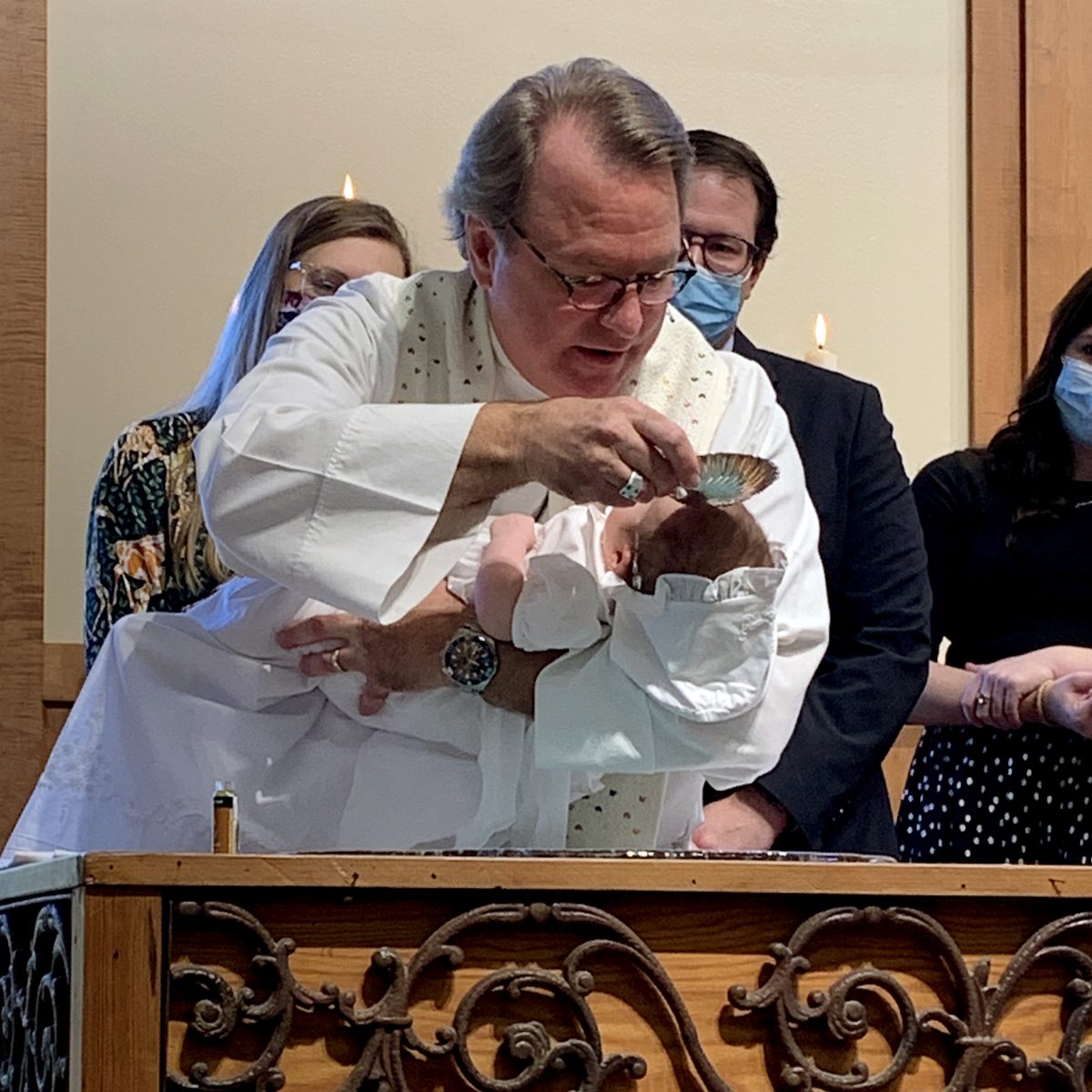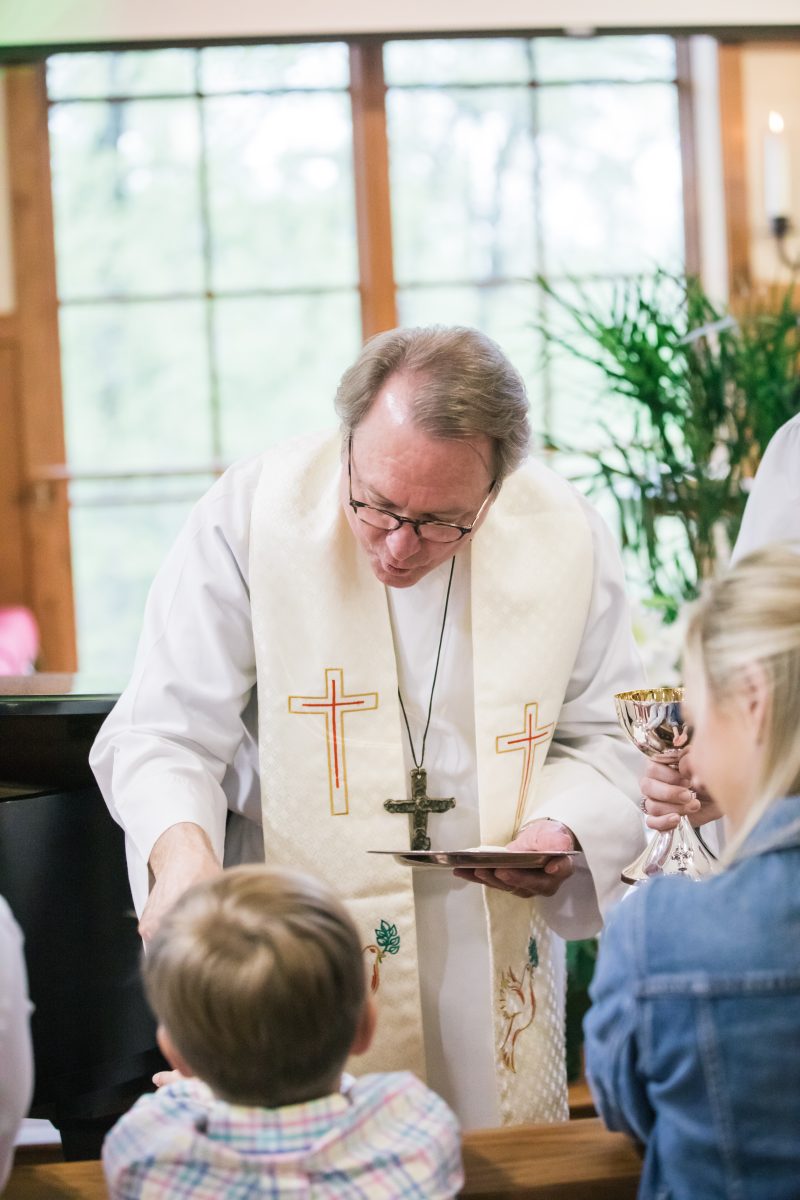
WORSHIP
Liturgical Worship
LITURGY Latin–meaning work of the people
St. Andrew’s order of worship–our liturgy–is about God, God’s story and our place within it. In liturgical worship, ancient practices of the Christian faith meet modern application; the timeless truth of the Gospel finds relevant expression in a powerful way.
Worship at St. Andrew’s provides a holy, relational and participatory environment to love and magnify God with our heart, soul, mind and strength. Liturgy transcends the ever-changing realities of our daily lives. We can count on it to bring us back to things that are true and constant.
MUSIC/SINGING
As we enter into worship, we do so joining our voices together as one body to sing to the Lord a new song and proclaim his excellencies. The congregation is the primary musical ensemble gathered to praise our Lord.
We recognized the beauty in worship music across time. Using a variety of songs to praise the Lord helps us to both honor the past and embrace the time in which we live. If you are not comfortable singing a particular song, we invite you to just listen to the words and be encouraged by the truth others are singing.
Praise to the Lord!
O let all that is in me adore him!
All that hath life and breath,
come now with praises before him!
Let the amen sound from his people again;
Gladly forever we adore him.
–Praise to the Lord, the Almighty, Joachim Neander
CONFESSION
We recognize that we come as broken people in need of experiencing the mercy and grace of our Lord Jesus Christ. The Confession is a time where we open ourselves to the Lord, recognizing our sin, admitting our unworthiness and receiving the forgiveness that is ours in Christ, not by what we can do, but by what Jesus has done for us.
COLLECT
A Collect is a short prayer that has a singular focus. These prayers come from the Book of Common Prayer and are each meant to be read on a specific Sunday throughout the liturgical year.
SCRIPTURE
We believe that the whole Bible speaks of God’s glorious Gospel. Therefore, each Sunday, we read a passage from the Old or New Testaments, a Psalm and a Gospel passage.
CREEDS
The Nicene and Apostles Creeds are statements of faith written by the early church and recited by the people after the sermon. Christians recite the Creeds to recommit their lives to Christ and to be reminded of the One in whom they believe. The Creeds also proclaim succinctly what Christians believe to those interested in becoming believers in Jesus Christ.
PRAYERS OF THE PEOPLE
In prayer we listen to the Lord, give thanks, present our petitions and requests, and lift up the needs, corporately and individually.
THE PEACE
This is a time where we are reminded of the peace of Christ given because of the Gospel. It is also a time for us to make peace with one another before we come to the communion table.
HOLY COMMUNION
We celebrate communion each Sunday because we believe communion is a tangible way to experience the grace of our Savior. We believe that communion is a ‘means of grace’ through which the Lord richly blesses us. We believe it is not just a remembering of the work of Christ, but a present communion with Christ himself, where we find strength, renewal and spiritual nourishment.

The Sacraments
We believe there are two sacraments that Christ has instituted–Baptism and Communion.
Baptism

Baptism is an important part of Christianity; it is a setting apart for a holy life. It is more than just a simple act or statement of faith; it is entry into the church. We baptize new Christians who are joining St. Andrew’s, as well as children being presented by their parents.
The sacrament of Baptism engages us and invites us to see the beauty of God’s love. The water poured over those being baptized signifies the abundance of the cleansing nature of Jesus. Baptism means being set apart for a holy life.
Mode of Baptism
Both pouring water over the head of an individual and immersion are valid forms of baptism. At St. Andrew’s, we pour water over the head of an individual because we believe that it reflects the continuity between the Old and New Testaments. In the Old testament, the priest would sprinkle the blood of the animal that was sacrificed on the alter signifying the cleansing of sin. In the New Testament, the author of Hebrews makes reference to this in Hebrews 10:22, “let us draw near with a true heart in full assurance of faith, with our hearts sprinkled clean from an evil conscience and our bodies washed with pure water.” Immersion, meanwhile, points to participation in Jesus death and resurrection, as Romans 6:3-4 say “ Do you not know that all of us who have been baptized into Christ Jesus were baptized into his death? We were buried therefore with him by baptism into death, in order that, just as Christ was raised from the dead by the glory of the Father, we too might walk in newness of life. ”
what happens in baptism
As infants are being presented on behalf of their believing parents, they are now seen as beneficiaries of the grace of God. In John 3:8, Jesus said, “The wind blows where it wishes, and you hear its sound, but you do not know where it comes from or where it goes. So it is with everyone who is born of the Spirit.” The Holy Spirit brings salvation to an individual at the time of God’s choosing.
For those who have come to faith in Christ and are being baptized, this is a sign and seal of God’s mark upon their lives.
When the sacrament of baptism is celebrated, the believers in the congregation participate in not only what God is doing in the lives of those being baptized, but also reflect on their own baptism and celebrate God’s gracious redeeming work in their lives.
Holy Communion

We believe that communion is a ‘means of grace’ through which the Lord richly blesses us. We believe it is not just a remembering of the work of Christ, but a present communion with Christ himself, where we find strength, renewal and spiritual nourishment. Communion stirs up our faith, shows us Jesus and helps us experientially understand his teaching. It makes the heart cry out: “Oh, how delicious is the gospel!” as we “taste and see that the Lord is good” (Psalm 34:8)
What happens to the bread and wine when it is consecrated?
In his Institutes, John Calvin spoke of the mystery of communion in the following way: “It is a mystery of Christ’s secret union with the devout which is by nature incomprehensible. If anybody should ask me how this communion takes place, I am not ashamed to confess that it is a secret too lofty for either my mind to comprehend or my words to declare. And to speak more plainly, I rather experience than understand it.”
Who can come forward during communion?
Any baptized follower of Christ who is “in love and charity with their neighbor” (1928 BCP) are welcome to receive the Sacrament of Communion regardless of a person’s denomination or church background.
Taking communion is not just an individual encounter, but a corporate experience of Christ’s presence among his people.
Prayer
Prayer is a vital part of who we are at St. Andrew’s. When we pray, we come with an expectancy of the work that God longs to do in us and through us. Prayer is a vital part of spiritual formation as we come submitting the whole of our lives to our Savior. We present our requests before the Lord remembering that “the Lord is good and his steadfast love endures forever.” (Psalm 100:5)
We care about you and want to pray with you.
- During both worship services, members of our prayer team are available to pray with you during communion through the end of the worship service.
- Prayer cards are available in the back of each seat for you to fill out a prayer request or praise. They are collected during the offering and members of the prayer team gather every monday morning to pray for the cards received each Sunday.
- Prayer requests can also be emailed to our prayer chain.
Sabbath
The weekly Sabbath was an important part of God’s plan for his creation and is a key part of our worship. Click below to discover more about Sabbath in scripture and browse several devotional options for incorporating Sabbath into your life.
Daily Office
Click below to read and be filled by today’s selection of daily scriptures and prayers.